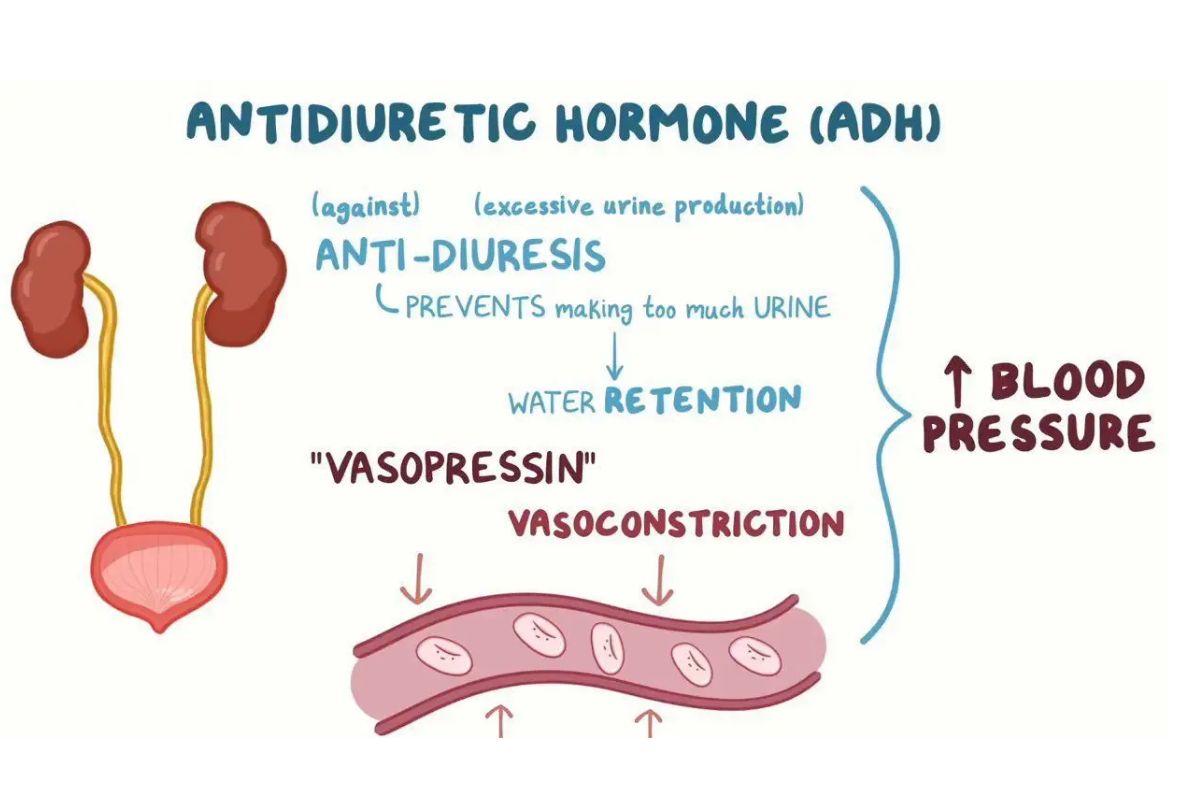
Antidiuretic hormone (ADH), also known as vasopressin, plays a crucial role in regulating water balance in the body. Ever wondered how your body knows when to hold onto water or when to let it go? That's ADH at work! This hormone, produced by the hypothalamus and released by the pituitary gland, helps your kidneys manage the amount of water in your blood. Without ADH, your body would struggle to maintain proper hydration levels, leading to conditions like diabetes insipidus. Curious about how this tiny hormone impacts your daily life? Let's dive into 25 fascinating facts about ADH that will quench your thirst for knowledge!
What is Antidiuretic Hormone (ADH)?
Antidiuretic hormone (ADH), also known as vasopressin, plays a crucial role in regulating water balance in the body. Produced in the hypothalamus and released by the pituitary gland, ADH helps the kidneys manage the amount of water in the body. Here are some fascinating facts about this vital hormone.
-
ADH helps the kidneys reabsorb water, reducing urine output and conserving body water.
-
The hypothalamus produces ADH, but it is stored and released by the pituitary gland.
-
ADH release is triggered by high blood osmolality, which indicates dehydration.
-
Alcohol consumption inhibits ADH release, leading to increased urine production and dehydration.
-
ADH also constricts blood vessels, which helps increase blood pressure.
How ADH Affects the Body
ADH has multiple effects on the body, influencing not just water retention but also blood pressure and overall fluid balance. Understanding these effects can help appreciate the hormone's importance.
-
ADH increases the permeability of kidney tubules, allowing more water to be reabsorbed into the bloodstream.
-
Low levels of ADH can lead to diabetes insipidus, a condition characterized by excessive thirst and urination.
-
High levels of ADH can cause water retention and hyponatremia, a condition where blood sodium levels become dangerously low.
-
ADH plays a role in social behavior and bonding, particularly in pair bonding in some animal species.
-
Stress can increase ADH release, contributing to water retention during stressful situations.
Factors Influencing ADH Levels
Various factors can influence the levels of ADH in the body, affecting its ability to regulate water balance and blood pressure.
-
Nicotine stimulates ADH release, which can contribute to water retention in smokers.
-
Certain medications, like diuretics and antidepressants, can affect ADH levels and its effectiveness.
-
ADH levels naturally fluctuate throughout the day, typically peaking at night to reduce urine production during sleep.
-
Severe blood loss or low blood volume can trigger a significant increase in ADH release to help maintain blood pressure.
-
ADH secretion can be influenced by the body's circadian rhythm, aligning with the sleep-wake cycle.
Medical Conditions Related to ADH
Several medical conditions are directly related to the production and function of ADH, highlighting its critical role in maintaining health.
-
Syndrome of inappropriate antidiuretic hormone secretion (SIADH) is a condition where excessive ADH leads to water retention and low sodium levels.
-
Central diabetes insipidus occurs when the hypothalamus or pituitary gland fails to produce or release adequate ADH.
-
Nephrogenic diabetes insipidus happens when the kidneys do not respond properly to ADH, despite normal hormone levels.
-
ADH analogs, like desmopressin, are used to treat conditions like diabetes insipidus and bedwetting.
-
ADH levels can be measured through blood tests to diagnose related disorders.
Interesting Facts About ADH
Beyond its primary functions, ADH has some intriguing aspects that reveal more about its role in the body and its evolutionary significance.
-
ADH is similar in structure to oxytocin, another hormone involved in social bonding and childbirth.
-
Some animals, like desert rodents, have evolved to produce higher levels of ADH to survive in arid environments.
-
ADH receptors are found in various tissues, including the brain, indicating its diverse roles beyond water regulation.
-
Research suggests that ADH may play a role in memory formation and cognitive function.
-
ADH has been studied for its potential role in treating conditions like heart failure and septic shock, where fluid balance is critical.
The Final Word on Antidiuretic Hormone
Antidiuretic hormone (ADH) plays a crucial role in maintaining the body's water balance. It helps kidneys manage the amount of water in the body by controlling how much water is reabsorbed into the bloodstream. Without ADH, dehydration or water retention could become serious issues. This hormone also affects blood pressure by narrowing blood vessels. Understanding ADH's functions can help in recognizing symptoms of disorders like diabetes insipidus or SIADH. Knowing these facts can be life-saving. So, next time you think about hydration, remember ADH's vital role. It’s not just about drinking water; it’s about how your body uses it. Stay informed, stay healthy.
Was this page helpful?
Our commitment to delivering trustworthy and engaging content is at the heart of what we do. Each fact on our site is contributed by real users like you, bringing a wealth of diverse insights and information. To ensure the highest standards of accuracy and reliability, our dedicated editors meticulously review each submission. This process guarantees that the facts we share are not only fascinating but also credible. Trust in our commitment to quality and authenticity as you explore and learn with us.
